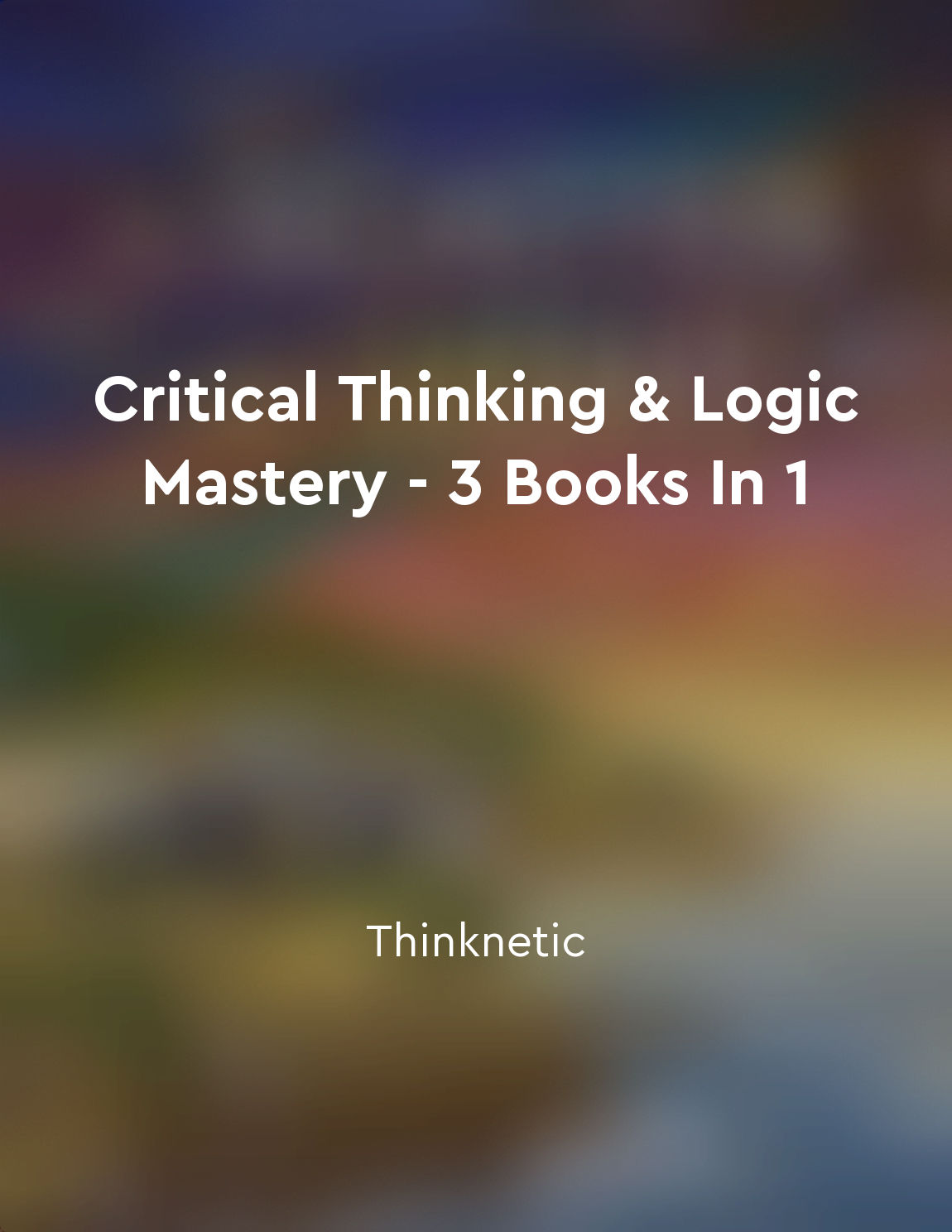Social media can shape our beliefs from "summary" of The Internet of Us: Knowing More and Understanding Less in the Age of Big Data by Michael P. Lynch
Social media has become a powerful force in shaping our beliefs about the world. Through the constant stream of information and opinions that flood our feeds, we are exposed to a wide range of perspectives that can influence how we see the world around us. This constant exposure to diverse viewpoints can lead us to question our own beliefs and perhaps even adopt new ones based on what we see on social media. One of the ways in which social media shapes our beliefs is through the phenomenon of echo chambers. When we surround ourselves with like-minded individuals on social media, we are more likely to be exposed to information and opinions that confirm our existing beliefs. This can create a feedback loop in which our beliefs are reinforced and amplified, making it difficult for us to consider alternative viewpoints. Another way in which social media can shape our beliefs is through the spread of misinformation. With the rise of fake news and clickbait headlines, it can be difficult to discern fact from fiction on social media. This can lead us to form beliefs based on false or misleading information, further shaping our worldview in ways that may not be based in reality. Additionally, social media algorithms play a role in shaping our beliefs by determining what content we see in our feeds. These algorithms are designed to show us content that is likely to keep us engaged, which can lead to a narrow range of perspectives being presented to us. This can limit the diversity of opinions to which we are exposed, further influencing the beliefs we hold.- Social media has a profound impact on the beliefs we hold about the world. Through echo chambers, the spread of misinformation, and algorithmic filtering, social media can shape our beliefs in ways that may not always be based on truth or reality. It is important to be mindful of the influence that social media can have on our beliefs and to critically evaluate the information we encounter online.
Similar Posts
Urbanization and its consequences
Urbanization is a process that has been transforming societies around the world for centuries. As people move from rural areas ...
Relying on reason can lead to more just and equitable societies
In a world filled with complex problems and conflicting interests, the ability to reason and think critically is more important...

Recognizing manipulation tactics is the first step to protecting oneself
Understanding how manipulators operate is crucial in safeguarding oneself from falling victim to their tactics. By being aware ...
Adaptability of content for different mediums
The idea of adapting content for various mediums is crucial in today's ever-evolving media landscape. It involves tailoring the...

Online activism has become a powerful tool for social change
In today's interconnected world, the rise of online activism has emerged as a force to be reckoned with in driving social chang...

Inductive reasoning draws generalizations from specific observations
Inductive reasoning involves drawing general conclusions from specific observations. It is a way of thinking that looks at indi...
Fairness and accountability are crucial
Fairness and accountability are crucial. When we examine the impact of mathematical models on society, we see that fairness is ...
We must confront the legacy of colonialism and imperialism
The brutal legacies of colonialism and imperialism continue to haunt us in the present day. These systems of domination and exp...
Cultivate resilience
In the face of unprecedented challenges and uncertainties in the 21st century, it is essential for individuals to develop resil...
The Great War was not inevitable
The idea that the Great War was not inevitable challenges the conventional narrative that portrays the events leading to the wa...

